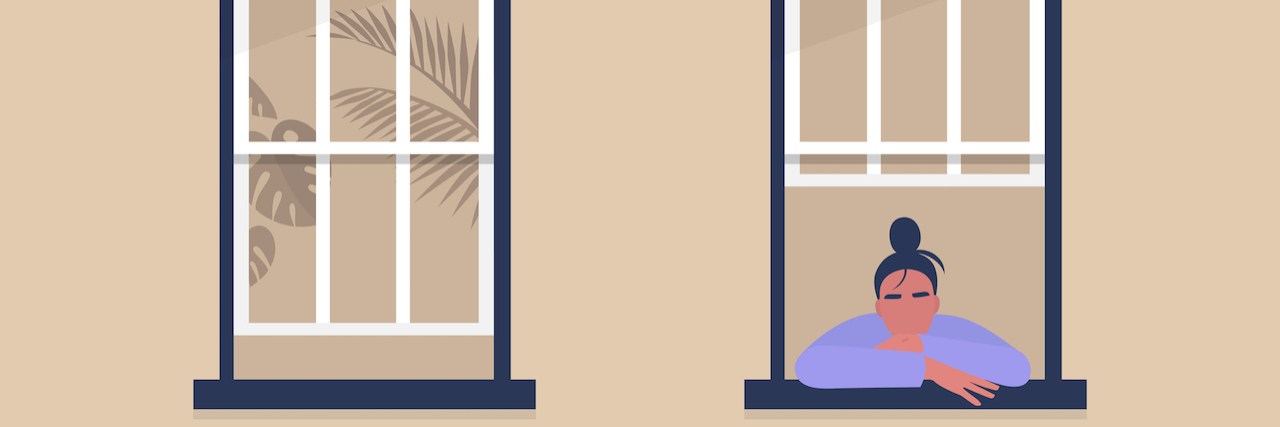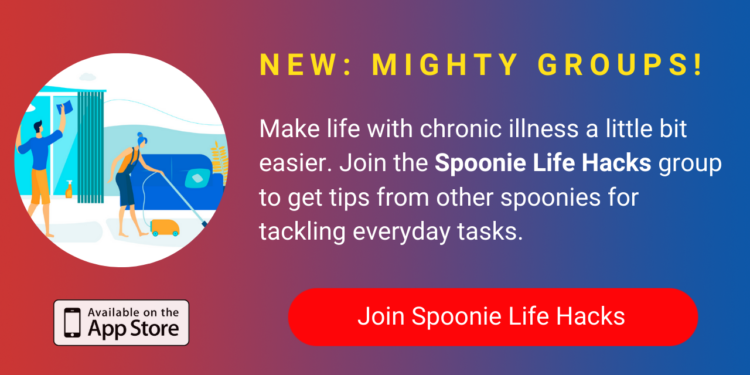The Odd Combination of Grief and Gratitude When You're in Survival Mode
Whether we plan to or not, we often end up re-creating ourselves after a significant health crisis. Researchers like Dr. Kathy Charmaz call this phenomenon “the loss of self,” a type of grief experienced while we’re learning to somehow adapt and adjust to an unfamiliar new life.
Nothing is as unfamiliar to us right now as the profound changes introduced by the COVID-19 virus.
And just as Dr. Charmaz identified in those of us with chronic illness, we can also experience this loss of self during a global pandemic.
Dr. Charmaz explains:
“A fundamental form of suffering is the loss of self in those who observe their former self-images crumbling away — without the simultaneous development of equally valued new ones.”
When everything about our former life is turned on its head, we may be left with the unsettling awareness that we don’t even know what’s real or not real anymore. Dr. Charmaz writes about suffering, but not only the narrow medicalized view of suffering most people associate with physical symptoms. That view, she says, ignores or minimizes the broader meaning of suffering.
Thus that “crumbling away” of my old self seems an appropriate term. So much has changed in my own life, for example — starting with my “widowmaker” heart attack, and ever since then due to ongoing symptoms of refractory angina (that’s chest pain uncontrolled by medications, caused by a subsequent new diagnosis of inoperable coronary microvascular disease). Two heart conditions for the price of one. . .
It wasn’t just that I had debilitating daily cardiac symptoms to deal with (crushing fatigue, shortness of breath, chest pain). It was more that, because of those symptoms, I had to stop working at a career I’d loved for 35 plus years. I was no longer able to go out in the evening, because by dinnertime, I’m so exhausted that I’ve “lost my nouns.” I could no longer do many things I’d done my whole life, so I had to learn to ask others for help, and to accept help when they offered. My world has shrunk to what I call one-outing days, or two-outing days or (rarely) three-outing days, each outing requiring a lie-down both before and after, and far too often a full day afterwards just to be able to recuperate.
I learned that living with chronic cardiac pain can change one’s personality. I also had to learn how to say no and especially that, once you’ve said it, “No!” is a complete sentence. I had to come to terms with this “loss of self” concept that Dr. Kathy Charmaz studies. And like all losses in life, I needed to find a way to gradually grieve each loss.
Yet conversely, I also felt moments of profound gratitude since the early days of my hospitalization.
As a person who had originally been sent home from the emergency department with an acid reflux misdiagnosis, I felt profoundly relieved to finally get a correct diagnosis. During that second trip to the emergency room, I felt lucky to have met the man who was soon to become my own cardiologist, the one who finally told me out loud what I already knew at some level: “I can tell from your test results that you have significant heart disease.”
But most of all, I felt gratitude toward my brave little heart, which had somehow survived what many do not. After my stay in the CCU (the hospital’s intensive care unit for heart patients) and then discharge home, I felt both humbled and moved by the care and generosity I witnessed from my wonderful family, friends, neighbors and work colleagues.
It struck me recently that this odd combination — feeling both grief and gratitude at the same time — is not unlike what I’ve been experiencing now under self-isolation at home during this pandemic.
Here are some of the things I missed most from my pre-COVID-19 life (both big and little — but each one means I’m feeling a loss):
- hugging and cuddling our granddaughter Everly Rose (this is a huge loss for me)
- coffee shop chats
- Saturday morning breakfasts during garage sale season with my pal Nancy
- doing my own shopping (when and where I want)
- overnight visits by ferry to our 96-year-old friend Pat
- trusting that I won’t get sicker if I go into the hospital
By the way, if my list seems trivial to you (and certainly not nearly as serious as being laid off work, or not having rent money or losing a loved one to this virus), it’s not because I’m making light of those with genuinely life-altering losses.
Author and breast cancer advocate Nancy Stordahl writes on her Nancy’s Point blog about allowing ourselves to admit the things we have lost and the things we miss.
“There should never be shame in talking about our losses. And doing so does not mean we are negative thinkers, ungrateful, filled with self-pity or are unable to move forward. Doing so is an essential part of emotional healing.”
At the same time, here are some of the things I’m grateful for during these surreal times:
- my kids stepped up to do all grocery shopping and errands
- a sign-up sheet on our condo bulletin board to match neighbors willing to help out and those who need help
- video chats that keep me in touch
- beautiful weather and beautiful flowers
- daily one-hour walks around the neighborhood
- cleaner air, quiet streets, birds singing
- a beautiful little apartment with lots to do (as I like to say: “I’m not stuck at home. I’m safe at home!”)
- the privilege of having a retirement pension deposited into my bank account every month
- lots of time to read, write and make art
- I live just a few blocks away from a world-class teaching and research hospital that’s well-equipped to handle COVID-19 if I do get it
- I live in Canada (aka “commie pinko land of socialized medicine”) where I and my family will never need to worry about how to pay for our health care
As Nancy Stordahl reminded us recently:
“Grief and gratitude can most definitely co-exist.”
And as I wrote in my book (A Woman’s Guide to Living with Heart Disease, Johns Hopkins University Press, 2017):
“In my own experience with heart disease, I learned to cope with crisis by coping. I learned to adapt to crisis by adapting. I learned to roll with the punches because, like so many of us, I’ve practiced rolling with so many figurative punches during my life. It’s not because I needed the crisis to become a better person, not because it was some kind of a gift, and certainly not because I needed to add meaning to a meaningless existence, but because human beings have a remarkable ability to get used to almost anything in life (both positive and negative).”
Now, as the weeks morph into months of precautionary self-isolation, how will our own responses to these restrictions evolve?
She wasn’t writing about COVID-19 at the time, but Dr. Kathy Charmaz nailed it when she observed that, for most of us, these responses tend to modify as time goes by:
“Priorities change, and along with them, perspectives. What began as an alien reality may, over time, come to feel natural, inalienable – right. What once may have devastated someone can become a path to developing competence and compassion.”
Please. Stay safe. . .
Follow this journey on Heart Sisters
Getty image by nadia_bormotova


